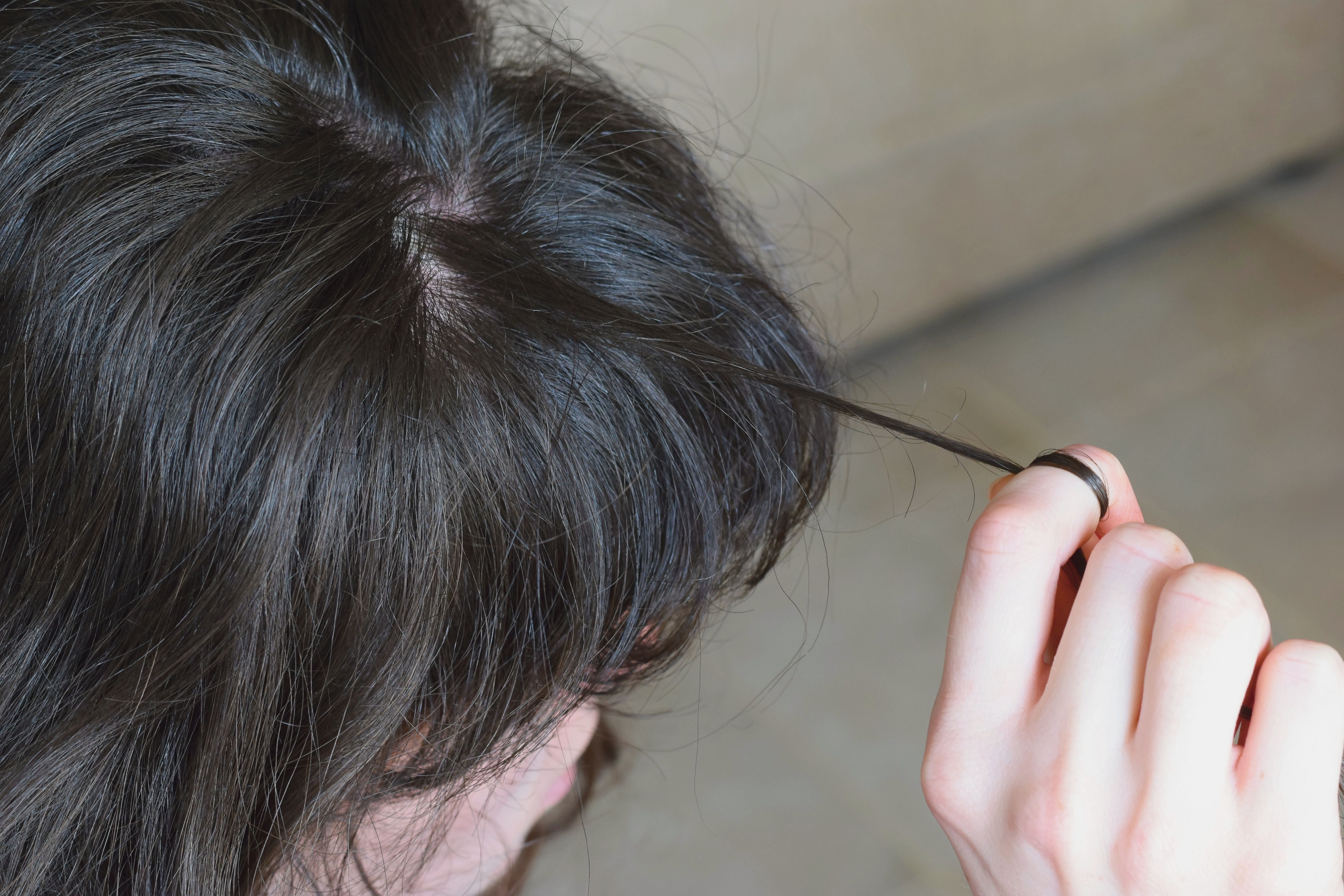- General Dermatology
- Eczema
- Alopecia
- Aesthetics
- Vitiligo
- COVID-19
- Actinic Keratosis
- Precision Medicine and Biologics
- Rare Disease
- Wound Care
- Rosacea
- Psoriasis
- Psoriatic Arthritis
- Atopic Dermatitis
- Melasma
- NP and PA
- Skin Cancer
- Hidradenitis Suppurativa
- Drug Watch
- Pigmentary Disorders
- Acne
- Pediatric Dermatology
- Practice Management
Pharmacological Interventions for Trichotillomania
Medical therapy should be paired with behavioral therapy to best treat this distressing hair-pulling disorder, researchers claim.
Tunatura/AdobeStock

Trichotillomania, a psychodermatological condition involving compulsive hair-pulling, is challenging to treat due to underdiagnosis, symptom heterogeneity, and stigma, according to researchers investigating its pharmacotherapy.1
Diagnostic criteria for trichotillomania include pulling of hair which results in hair loss; attempts to either decrease or stop pulling; significant distress or impairment; and pulling that cannot be attributed to another medical or psychiatric condition, according to the American Psychiatric Association’s Diagnostic and Statistical Manual of Mental Disorders.2
The most common sites involved are the scalp, eyebrows, and eyelashes, although pulling from multiple sites is not uncommon. Pulling episodes can last from a few minutes to several hours.2
In a literature review that appeared in the journal Clinical and Experimental Dermatology, Ghani et al analyzed recent research to determine the most effective treatments for this distressing, often-debilitating disorder.
They examined PubMed and Scopus databases for studies within the last 10 years that assessed pharmacotherapy for trichotillomania. A total of 23 articles that addressed pharmacotherapy for trichotillomania were identified.
Using this data, the researchers provided insights into current evidence regarding treatment and potential directions for future research.
OTC supplement N-acetylcysteine (NAC), the antipsychotic aripiprazole, and monoamine oxidase inhibitors (MAOIs) were found to be the most effective trichotillomania treatments.
“NAC was identified as the most impressive adjunctive therapy in treatment through its mechanism of decreased glutamate-induced excitatory neuronal damage, with adjunctive antioxidant properties,” the study authors wrote.
Other groups have determined that NAC in doses of 1200 mg twice a day appears to be the most promising pharmacological option for treating trichotillomania without significant side effects.2
“Most of the other therapeutics that were identified require further research and controlled trials to validate their findings,” Ghani et al wrote. “Even if successful therapeutic outcomes are achieved, it is important to consider the patient’s comorbidities and to combine pharmacologic interventions with behavioral therapy interventions to comprehensively manage [trichotillomania].”
Dermatology Times previously reported research by Grant et al has shown that the glutamate modulatormemantine (Namenda), a drug used to treat Alzheimer’s disease, is associated with significant improvements in symptoms of adults with trichotillomania or excoriation disorder (skin-picking or dermatillomania).3
This study found that memantine treatment resulted in statistically significant reductions in hair pulling and skin-picking symptoms compared with placebo and was well-tolerated. “The glutamate system may prove to be a beneficial target in the treatment of compulsive behaviors,” Grant et al concluded.
They also recommended the use of habit reversal therapy (HRT) to treat trichotillomania.
HRT utilizing training in awareness, relaxation, competing responses, motivation, and generalization should be considered a first-line treatment, they wrote.
References
- Ghani H, PodwojniakA, Tan IJ, Flioren tR, Jafferany M. From tugs to treatments: A systematic review on pharmacological interventions for trichotillomania. Clin Exp Dermatol. Published online February 20, 2024. doi:10.1093/ced/llae052
- Grant JE. Trichotillomania (hair pulling disorder). Indian Journal of Psychiatry. 61(Suppl 1):p S136-S139. January 2019.DOI: 10.4103/psychiatry.IndianJPsychiatry_529_18
- Nagorka C. Alzheimer’s disease drug may improve trichotillomania. Dermatology Times. March 9, 2023. Accessed February 20, 2024. https://www.dermatologytimes.com/view/alzheimer-s-disease-drug-may-improve-trichotillomania
